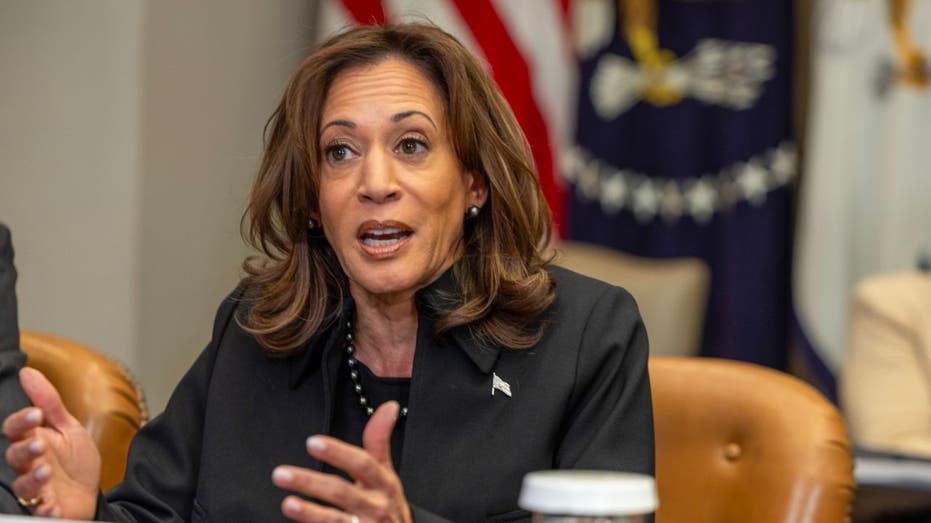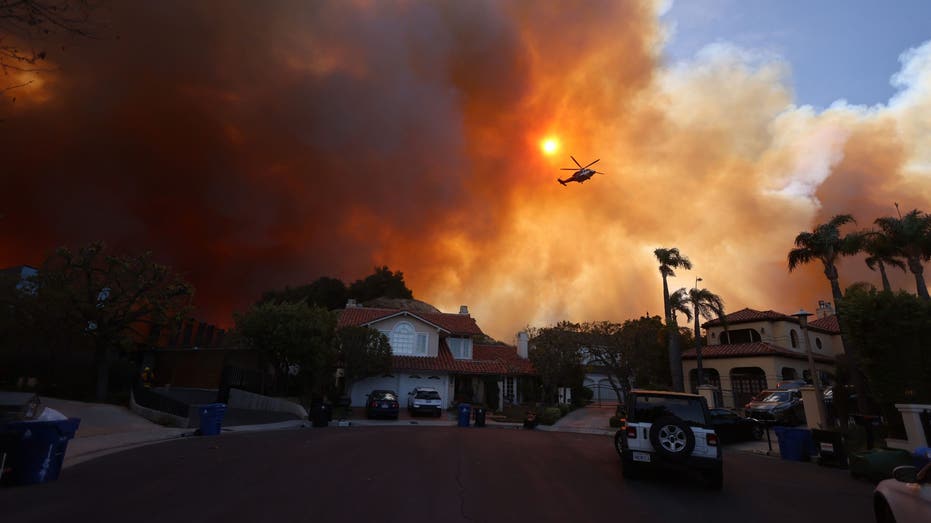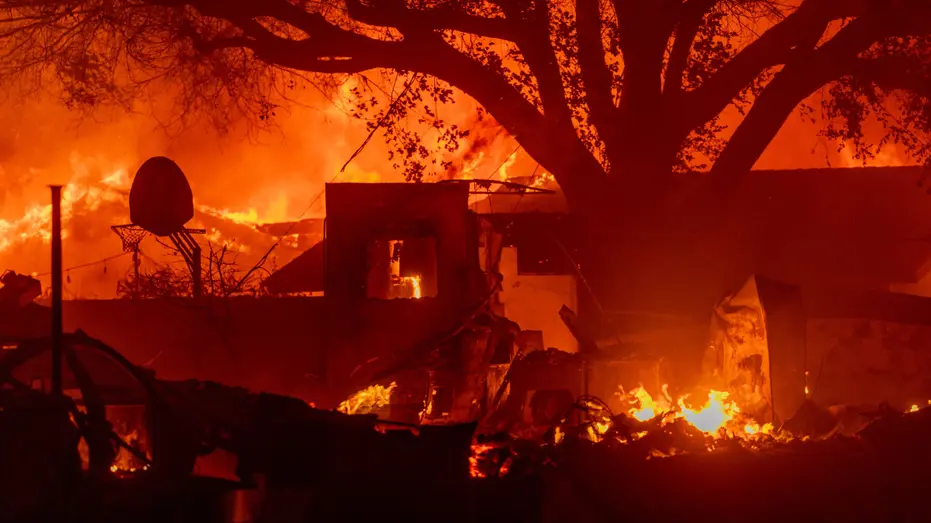California fires: VP Harris called out over claim about canceled insurance
Insurance industry calls Harris' claim that insurers are canceling policies 'false, wrong and dangerous'
California wildfires will fuel ripple effect of devastation: insurance expert
CRMBC CEO and insurance industry expert Kaya Stanley explains how there is no state surplus to cover the catastrophic economic losses associated with the Los Angeles wildfires.
The insurance industry is pushing back after Vice President Kamala Harris suggested insurance companies have canceled the policies of victims of California's wildfires, calling her claim "false, wrong and dangerous."
During a press conference regarding the ongoing wildfires on Thursday, Harris said, "Many insurance companies have canceled insurance for a lot of the families who have been affected and will be affected, which is only going to delay or place an added burden on their ability to recover."

Vice President Kamala Harris speaks to the media regarding the federal response to the Los Angeles wildfires at the White House in Washington, D.C., on Thursday. (Tasos Katopodis/Getty Images / Getty Images)
"I think that is an important point that must be raised," she continued, "and hopefully there can be some way to address that issue, because these families — so many of them — otherwise will not have the resources to recover in any meaningful way, and many of them have lost everything."
David Sampson, president and CEO of the American Property Casualty Insurance Association (APCIA), told FOX Business, "It is false, wrong and dangerous to even insinuate that insurers are abandoning their customers, and it's especially concerning coming from a former California statewide elected official who should know the law."
He added, "Insurers are committed to protecting the safety of those affected and providing expedited relief to their policyholders for the covered losses."

Plumes of smoke are seen as a wildfire burns in Pacific Palisades, California, on Tuesday. (David Swanson/AFP via Getty Images / Getty Images)
Sampson noted that California law prohibits insurers from canceling an insurance policy during its term, except for very limited exceptions, such as non-payment of premiums or fraud.
He added, "So the implication that people who have insurance coverage effective on January 7th are being canceled — just to leave that impression with people and to create that fear — is irresponsible, in my view."
FOX Business has reached out to the White House for comment.
CALIFORNIA INSURANCE CRISIS: LIST OF CARRIERS THAT HAVE FLED OR REDUCED COVERAGE IN THE STATE
Even before this week's wildfires hit, California was in the midst of an insurance crisis, with many residents unable to obtain homeowners insurance due to several carriers limiting their exposure in the state or pulling out completely in recent years because of heavy losses and the inability to adequately raise premiums or assess risk due to California's regulations.
Los Angeles wildfires expose insurance crisis in California
Malibu resident Saphia Hall gives a firsthand account of the catastrophic California wildfires on 'Making Money.'
The state's largest homeowners insurance carrier, State Farm, announced in March of last year that it would not renew some 72,000 home and apartment policies in the summer. The company cited inflation, regulatory costs and increasing risk of catastrophes for its decision and had previously stopped accepting new applications in the state.
CALIFORNIA WILDFIRES COULD COST INSURERS $20B, HIGHEST IN STATE'S HISTORY
Several other leading insurers, including All State, Farmers and USAA, have also in recent years curbed new policy applications in California as part of an effort to limit their exposure to policies that carry what they see as undue risk given what the state's regulators have allowed them to charge policyholders. Similar reasons of escalating risk, high repair costs and rising reinsurance premiums have been cited in those decisions.
While it is illegal for insurance companies to cancel policies before they expire in California, many homeowners whose policies were not renewed have struggled to obtain or afford coverage, as the number of carriers in the state continues to shrink.

Homes burn as powerful winds drive the Eaton Fire in Pasadena, California, on Tuesday. (David McNew/Getty Images / Getty Images)
Because of that situation, many homes destroyed by the ongoing wildfires were not insured.
GET FOX BUSINESS ON THE GO BY CLICKING HERE
In the wake of the latest fires in Southern California, some critics have blamed insurance companies for declining to cover property in the state's fire-prone areas. But Sampson says he has been warning California regulators for years about the vulnerability of the insurance market in the state.
He explained, "Over the last almost decade now, for every dollar of homeowners premium that we have collected, we have paid out $1.09 in claims — and that's not sustainable."
FOX Business' Eric Revell contributed to this report.






















